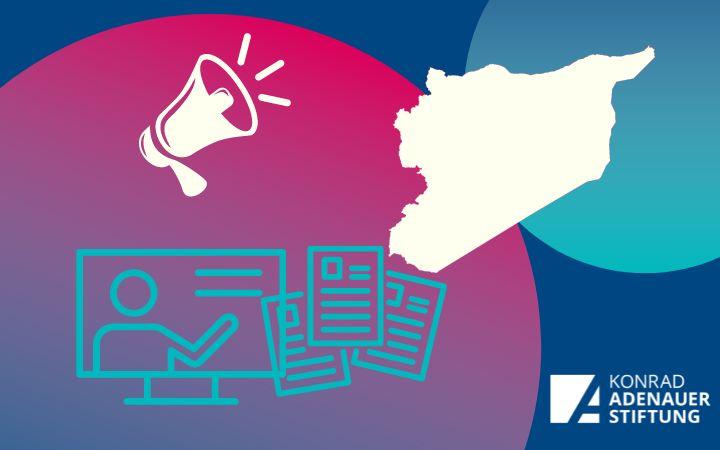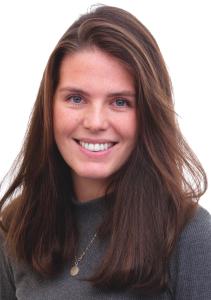Call for proposals: Research paper on the impact of the Syrian war on the communities of Daraa - Foundation Office Lebanon
Background
The Konrad-Adenauer-Stiftung (KAS) is a political foundation of the Federal Republic of Germany. With more than 100 offices worldwide, KAS fosters international cooperation and development and promotes the principles of liberal democracy and social market economy. The KAS Lebanon Office, founded in 2015 in Beirut, works on topics with political, social and economic relevance in Lebanon. In addition to that, KAS Lebanon deals with issues of forced displacement, flight and migration in the Levant. Especially the repercussions of the civil war in Syria are felt throughout the region and need to be addressed if tenable solutions for greater stability and prosperity ought to be found. In this regard, the KAS Lebanon Office seeks to implement projects and further knowledge that address the root causes of flight and migration as well as related ramifications for affectedpopulations in the region.
Research Context
The city of Daraa is widely known as the “cradle of the Syrian revolution”. Since the outbreak of the war in March 2011, the city as well as the governorate of Daraa have seen protracted fighting and large-scale destruction. The area has remained a hotbed for violence and lawlessness even after 2018, when the Syrian Army retook the province and a reconciliation agreement with opposition factions and local dignitaries was made. Yet, the governorate remains volatile as the Assad regime continues to carry out military operations, arrest campaigns and other oppressive tactics against the local population. Instability and public frustration last cumulated in August 2023 when a new wave of protests fueled by widespread economic grievances spilled over from the neighboring Suwayda province to Daraa and beyond.
Taken together, the war dynamics of the past 12 years have irreversibly changed Daraa’s communal dynamics and social fabric. The fact that the Syrian uprising began in Daraa cannot least be attributed to the fact that Assad’s neo-liberal reforms of the 2000s largely alienated the Sunni majority in the governorate. Since then, the sustained conflict and deliberate instrumentalization of ethnic and religious groups by the Assad regime have manufactured heightened division, amongst others, between minority communities and the Sunni majority of Daraa. For instance, a significant portion of the region’s Christian communities fled as they feared persecution from both Assad’s regime and Syrian opposition forces. Despite efforts by Moscow to return Syrian Christians to south-west Syria after the 2018 reconciliation deal, only a fraction of those who left came back. Similarly, proposals to return members of Daraa’s Shia and Alawite communities have been rejected by local authorities, citing concerns over Hezbollah and Iranian militias infiltration. Furthermore, tribalism played a significant role in the establishment of militant Islamic factions along clan structures in Daraa. On a socioeconomic level, the war economy has altered the function of such traditional family ties. On one hand, family and clan solidarity has been a means of survival such as through the pooling of resources during the height of the war. It has also enabled the establishment of (civil society) organizations that could provide for basic needs in the absence of public services. On the other hand, foreign criminal groups have also relied on local actors, especially those with family ties spanning across borders into Jordan, for illicit activities such as drug and weapon smuggling.
Understanding the effect of the war on Daraa’s social fabric as a whole and its various ethnic, religious and tribal groups in particular is vital not only for fostering post-conflict cohesion in the future but also for finding potential entry points for localized solutions at present. Here, the identification of constructive local forces including civil society actors and organizations, religious, ethnic and tribal leaders and dignitaries, who enjoy legitimacy among their constituencies and may thus facilitate bottom-up community rebuilding processes and reconciliation, is of great significance.
Objective
The commissioned research aims to provide a nuanced understanding of the socio-economic and political transformations that have occurred within and between Daraa’s different communal groups since the outbreak of the war. Aspects that should be explored include but are not limited to:
- Giving a brief historic background (pre-2011) to contextualize the societal landscape of Daraa
- Analyzing the impact of the war on the different communities in Daraa, looking at relevant socio-economic and political aspects including:
- Changes in dynamics within and between communal groups such as possible alterations in identities, loyalties, functions, flight/migration behavior
- Communal groups’ relationship with the Syrian regime as well as connections to other relevant political and/or militant groups
- Identifying current actors, groups and organizations that hold authority/legitimacy in Daraa
- Analyzing their potential role in finding localized solutions towards community rebuilding, reconciliation, and (post-conflict) social cohesion
- Providing recommendations for European/German policymakers for exploring novel approaches towards localized solutions based on the research findings
Deliverables
A research paper with approximately 6,000 – 8,000 words on the above-mentioned topic to be delivered until the 16th of June 2024. The presumed total workload is anticipated to range between 12 to 15 working days.
Submission
We invite interested researchers and scholars to submit:
- A two-page research abstract with a clearly formulated research structure, methodology and budget
- An up-to-date curriculum vitae describing their experience and any other relevant information
The application should be submitted by email to anne.bauer@kas.de. The deadline is the 31st of March 2024.




